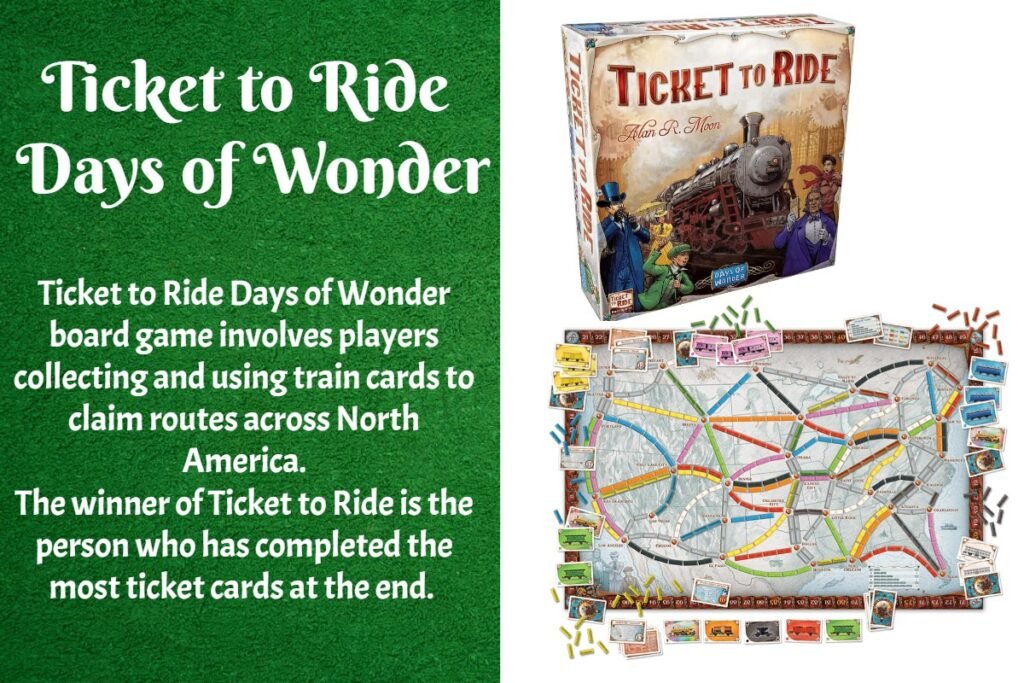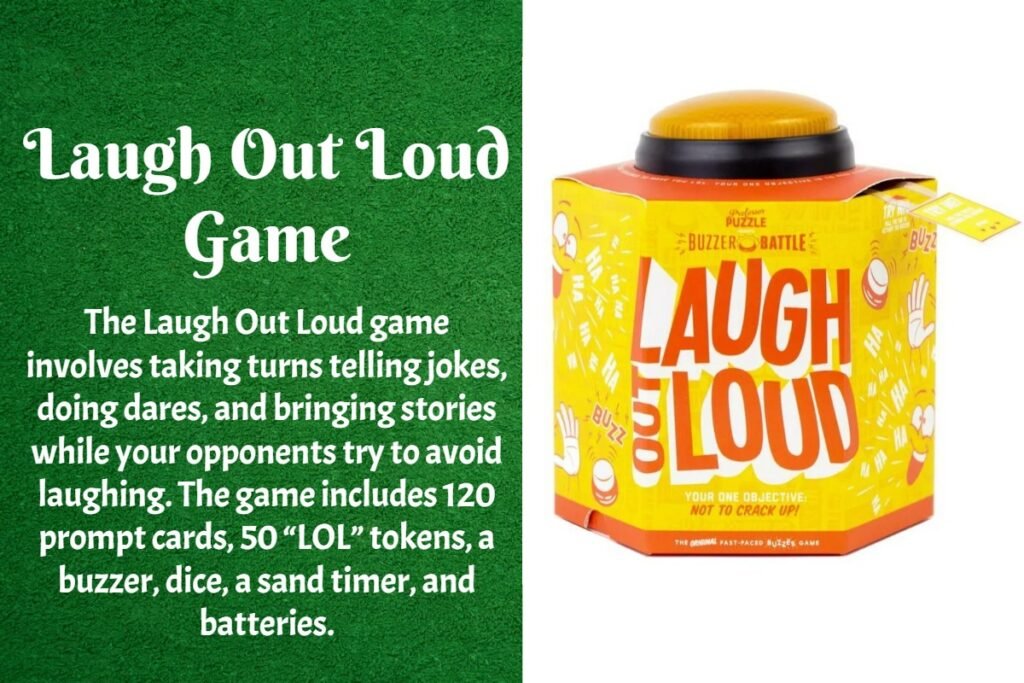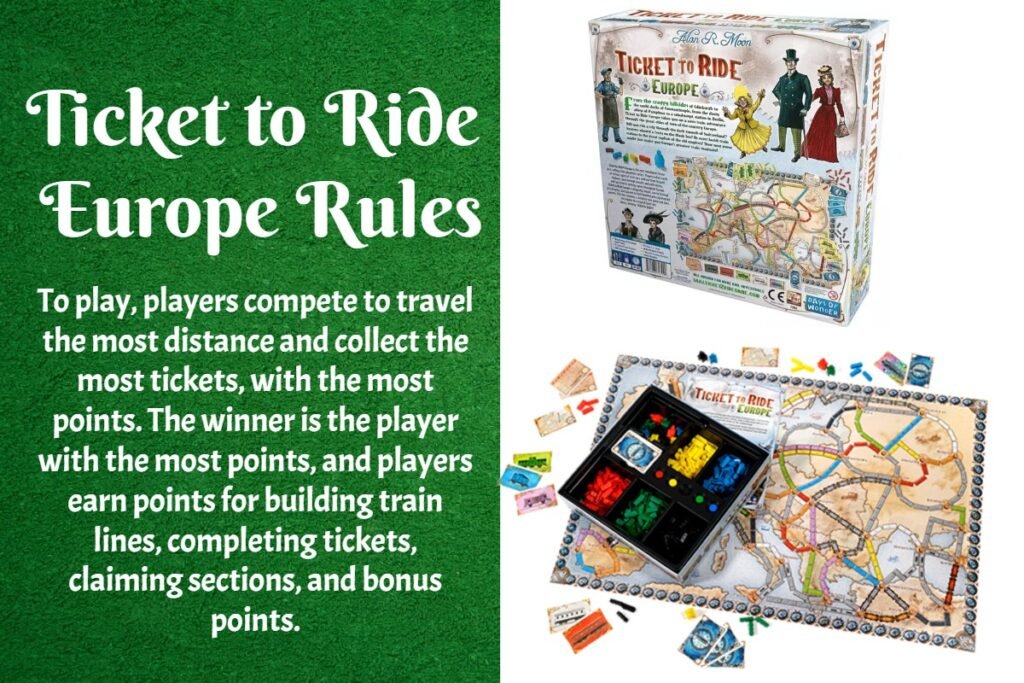Monopoly is a multiplayer economics-themed board game. In the game, players roll two dice (or 1 extra special red die) to move around the game board.
Monopoly Rules
Monopoly is a game where you try to become the wealthiest player by buying, renting, and trading properties. You can also make other players go bankrupt by charging them high rents. The game ends when only one player has money left. Other versions of Monopoly are Monopoly Junior, Monopoly …
Components
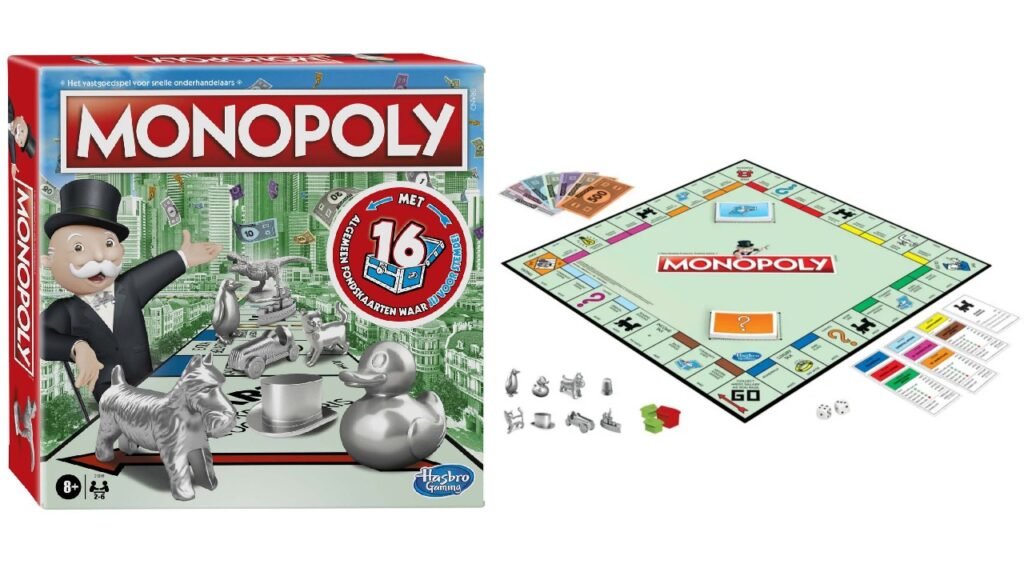
What You Need To play Monopoly, you need the following things:
- A board with different spaces and properties
- Two dice to roll and move your token
- A token for each player to represent them on the board
- 32 houses and 12 hotels to build on your properties
- 16 Chance and 16 Community Chest cards with random events
- 28 Title Deed cards that show the details of each property
- Money in different denominations to pay and collect
How to Set Up the Game
To set up the game, follow these steps:
- Each player picks a token and puts it in the “GO” space on the board.
- Each player gets $1500 in Monopoly money. The money should be divided as follows: two $500 bills, four $100 bills, one $50 bill, one $20 bill, two $10 bills, one $5 bill, and five $1 bills.
- The remaining money is kept in the bank, managed by one player, who is chosen as the Banker. The Banker also handles the property cards, houses, and hotels.
- The Chance and Community Chest cards are shuffled and placed face down on their marked spaces on the board.
Monopoly Board Game Properties and Actions
There are 28 properties in the game, each with a title deed card that shows the rent, building cost, and mortgage value. The properties are grouped into different types and colours, as follows:

- Streets: There are 22 streets in the game, each belonging to a colour group with one or two other streets. The colour groups are brown, light blue, pink, orange, red, yellow, green, and dark blue. The colour of the street is shown by a bar on the top of the space and the card. The more expensive the street, the higher the rent and building cost.
- Railroads: The game has four railroads at the centre of each side of the board. The rent for a railroad depends on how many railroads the owner has.
- Utilities: The game has two utilities: the Electric Company and the Water Works. The rent for a utility depends on the dice roll of the player who lands on it.
There are also 12 action spaces in the game, which are:
Chance and Community Chest
The game has six card spaces: three for Chance and three for Community Chest. When a player lands on a card space, they must draw a card from the corresponding deck and follow its instructions.
The card may give the player money, make them pay cash, move them to another space, or send them to Jail. Some cards also have a “Get Out of Jail Free” option, which can be used or sold anytime.
Income Tax and Luxury Tax
The game has two tax spaces, where the player must pay a certain amount of money to the bank.
GO, Jail, Free Parking, and Go to Jail
The game has four corner spaces, each with a different effect. GO is where the players start the game and collect $200 every time they pass or land on it. Jail is where the players go when they are sent to Jail, either by a card or by rolling three doubles in a row.
Free Parking is a space where nothing happens and where some players like to put the money from taxes and fines. Go to Jail is a space that sends the player to Jail without passing GO or collecting $200.
Jail
Jail is a place where the player cannot move or collect rent. The player can get out of Jail by paying $50, using a “Get Out of Jail Free” card, or rolling doubles on their next turn. If the player fails to roll doubles after three tries, they must pay the $50 and move out of Jail.
Building Houses and Hotels
Once players own all the properties in a colour group, they can build houses and hotels. Houses and hotels increase the rent other players must pay when they land on the property. The player can build up to four houses on each property and replace them with a hotel. The cost of building houses and hotels depends on the property’s value.
Bankruptcy
Players who cannot afford rent, taxes, or other fees must declare bankruptcy and are out of the game. The player must give up all their properties, money, and cards to the player or the bank they owe. The game continues until only one player has money left or until the players agree to stop and compare their wealth.
Income Tax
When a player lands on Income Tax, they have two options:
- Pay 10% of their total worth, including money, properties, houses, and hotels
- Pay a flat fee of $200
The player must choose before adding up their total worth.
Buying Properties
When a player lands on an unowned property, they can buy it from the bank for the price shown on the card. If they do not want to buy it, the property is auctioned off to the highest bidder among the other players. The bidding starts at any price, and the bank cannot bid. If the player lands on a property owned by another player, they must pay rent to the owner according to the card.
Selling Properties
A player can sell their properties to another player at any time if they are not mortgaged or have buildings on them. The price is negotiated between the seller and the buyer. A player can also sell their properties back to the bank, but only for half the price shown on the card. Players can also mortgage their properties to the bank for half the price but must pay 10% interest to unmortgage them later.
Paying Rent
When a player lands on a property owned by another player, they must pay rent to the owner. The rent amount depends on the property’s type and value and whether it has houses or hotels. The rent is doubled if the owner has all the properties in the same colour group. The rent is zero if the property is mortgaged.
How to Play Monopoly Game
The game is played in turns, with each player rolling the dice and moving their token to the number of spaces shown on the dice. The player must do what the space they land on says, which includes Monopoly game rules:
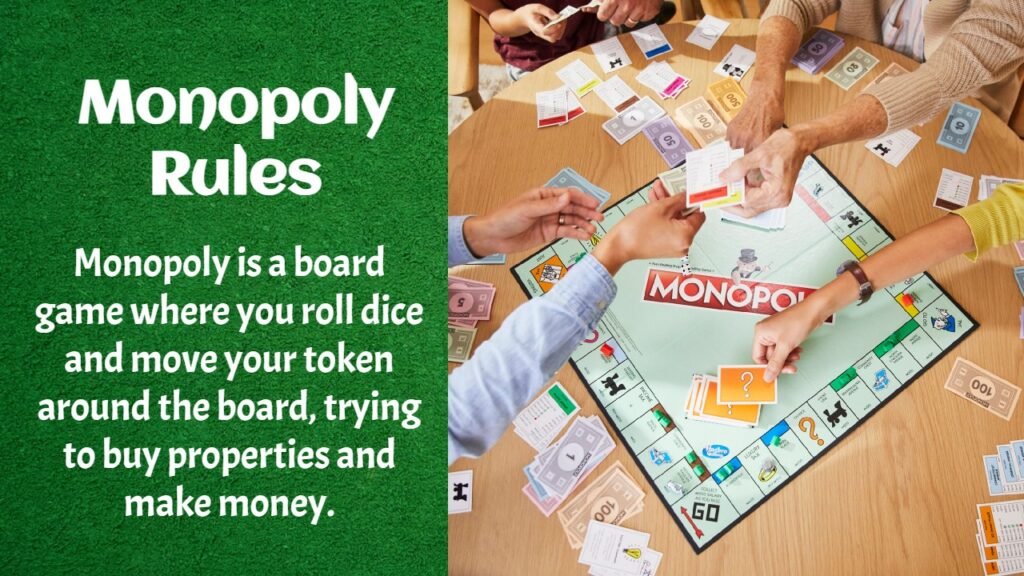
- Buying a property if it is not owned by anyone else
- Paying rent if another player owns the property
- Drawing a Chance or Community Chest card and following its instructions
- Going to Jail: if the player lands on the “Go to Jail” space or draws a card that says so
Monopoly Gameplay: How to Play
Monopoly is a game where you roll the dice, move your token around the board, buy and sell properties, and try to make your opponents go bankrupt. Here are the rules of Monopoly games:
- Choose a player to be the Banker. The Banker is responsible for the money, the property cards, the houses, and the hotels.
- Each player picks a token and puts it in the “GO” space on the board.
- Each player gets $1500 in Monopoly money. The money should be divided as follows: two $500 bills, four $100 bills, one $50 bill, one $20 bill, two $10 bills, one $5 bill, and five $1 bills.
- The Banker shuffles the Chance and Community Chest cards and places them face down on their marked spaces on the board.
- Decide who goes first by rolling the dice. The player with the highest number starts the game. The game continues clockwise from the first player.
- On your turn, roll the dice and move your token to the number of spaces shown on the dice. Do what the space you land on says. You may have to buy a property, pay rent, draw a card, pay taxes, or go to Jail.
- You have rolled doubles if you roll the same number on both dice. You can move the dice again and take another turn. But be careful; if you roll doubles three times in a row, you must go to Jail.
- The game ends when one player has all the money and properties or all the other players have gone bankrupt. The player with the most cash and properties wins the game.
How to Win the Game
The game is won by the player who has the most money after all the other players have gone bankrupt. Players go bankrupt when they cannot pay what they owe to another player or the bank. The bankrupt player must give up all their properties, money, and cards to the player or the bank they owe.
Conclusion
Monopoly is a fun and challenging game that requires a combination of luck and strategy. Following these Monopoly game rules outlined in this guide can increase your chances of winning and having a great time playing with friends and family. So gather your loved ones, set up the board, and get ready to become the wealthiest player in Monopoly. You can visit it on Amazon.com.
Board Games To Try Now!
How many players can play Monopoly?
Monopoly can be played by 2 to 8 players. The more players, the more fun and competitive the game can be.
How long does a game of Monopoly take?
The duration of a game of Monopoly depends on several factors, such as the number of players, the speed of play, the rules used, and the luck of the dice. A typical game can take 1 to 4 hours, or even longer, if the players are very cautious or stubborn.
What are some variations or house rules for Monopoly?
Monopoly is a game that can be customized and modified according to the players’ preferences. Some common variations or house rules are:
- Free Parking: Some players like to put the money from taxes and fines on the Free Parking space, and whoever lands on it gets to collect it. This can make the game more exciting and fun, longer, and less balanced.
- Speed Die: Some editions of Monopoly include a third die, called the speed die, that can make the game faster and more dynamic. The speed die has different symbols, such as a bus, a Mr. Monopoly, and a triple, that can affect the movement and actions of the player who rolls it.
- No Auctions: Some players prefer to skip the auctions when they land on an unowned property and do not want to buy it. Instead, the property remains unowned until another player lands on it and buys it. This can make the game simpler, shorter, less strategic and more competitive.
- Custom Boards: Some players like creating boards with different names, values, and layouts for the properties and spaces. This can make the game fun and personal but more challenging and confusing.
Discover more from Learning Board Games
Subscribe to get the latest posts sent to your email.

